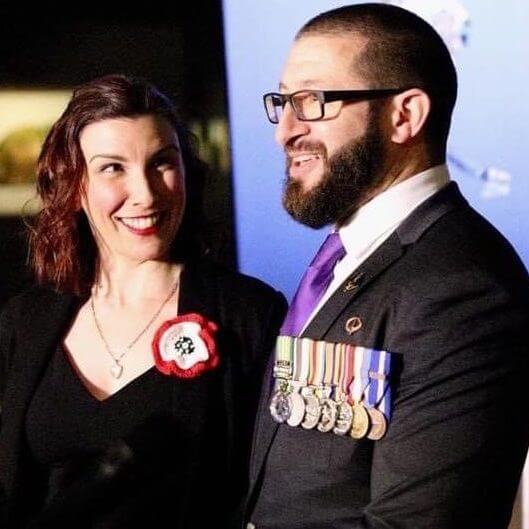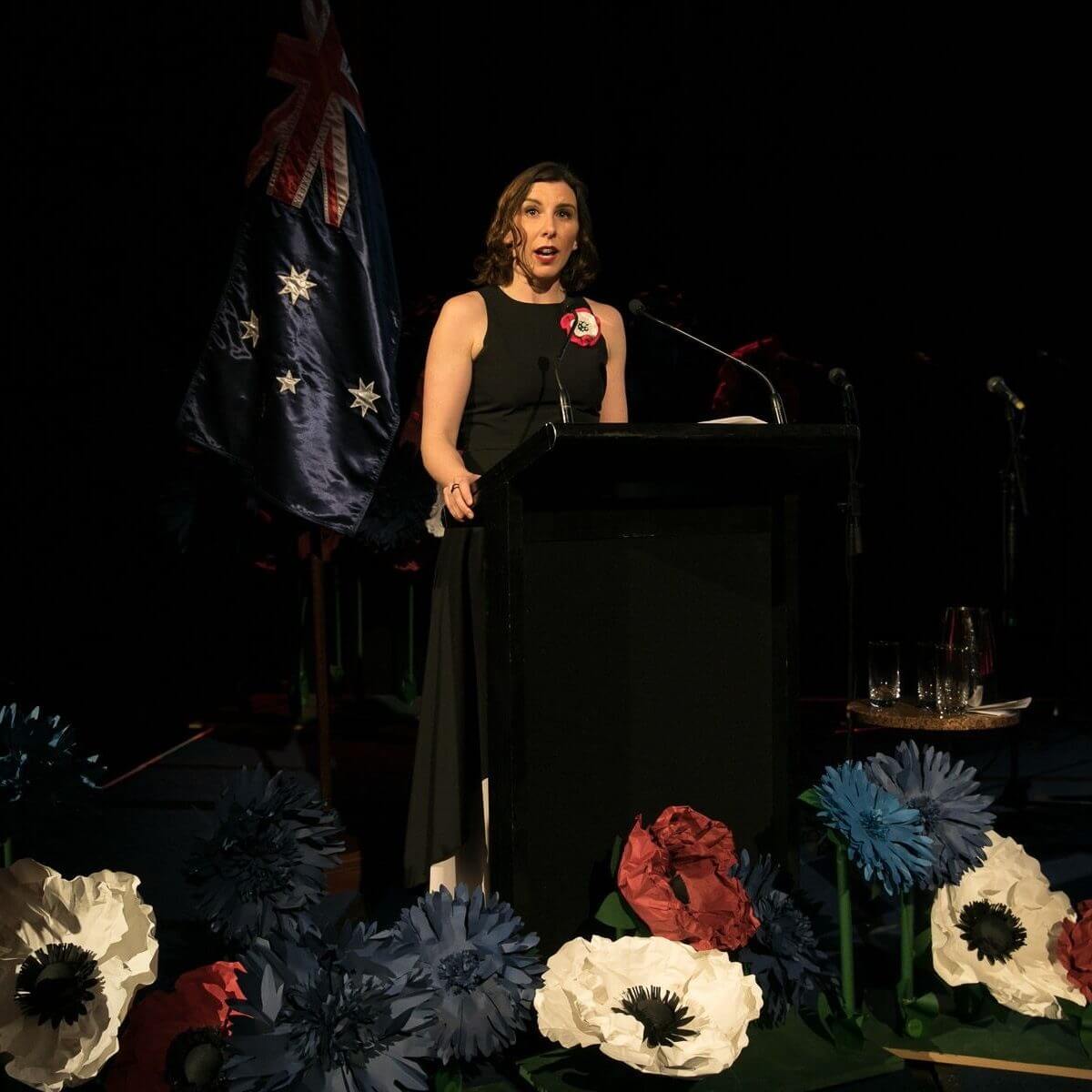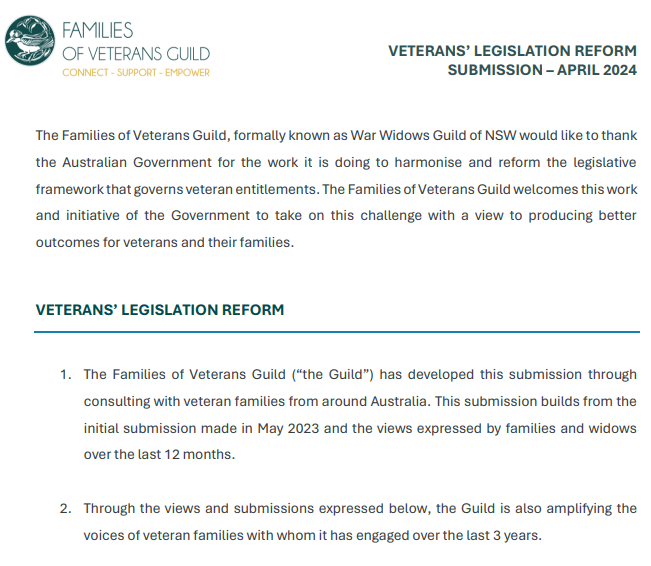Awareness and advocacy program
The purpose of the Awareness and Advocacy Program is to address gaps in the veteran support system in its design and implementation. To address issues in the operation of the system. Identifying and advocating for the needs of veteran families and war widows, building public knowledge, awareness and systems of support.
- Major events such as War Widows Day & the Field of Remembrance.
- Stakeholder and community engagements and consultations on matters affecting veteran families and war widows.
- Advocacy campaigns including National War Widows Day and Veteran Family Recognition.
- Representing community interest at consultations, with stakeholders and government.
- Written submissions and engagements with Royal Commission and within sector on veteran family matters.
- Thought leadership, policy proposals and public relations.
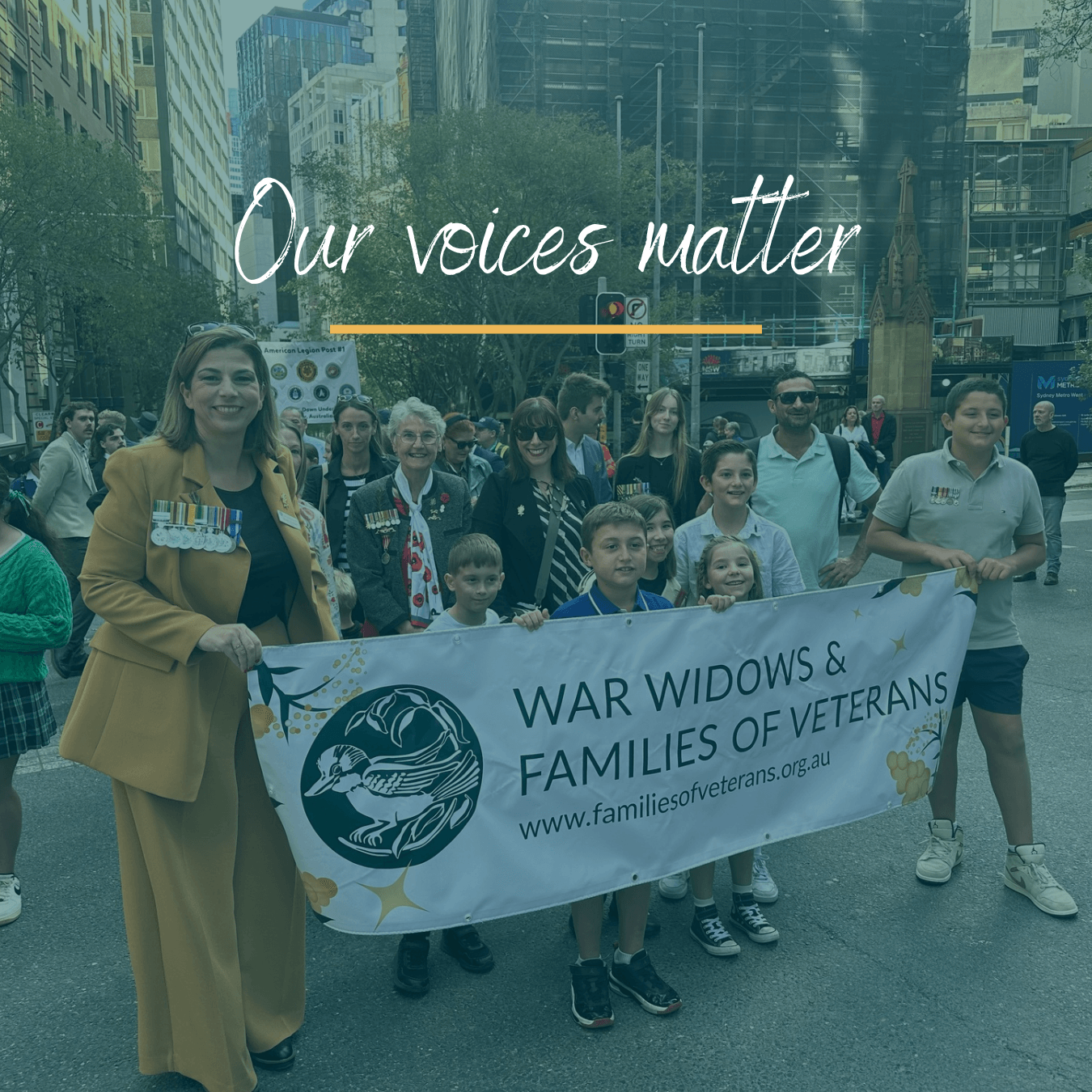
Advocacy has been a core element of our service delivery for more almost 80 years. We have advocated on matters affecting war widows and veterans’ families at all levels of government. At times working with other veteran community organisations in order to achieve outcomes.
Advocacy achievements
Over the years, together with other interested parties we have has increased the awareness of the experiences of war widows and ensured that they were provided for. Significant achievements include:
- Establishment of the War Widows Pension
- Maintaining and increasing War Widow Pension Rates
- Establishing concessions on utilities and transport
- Enhanced access to medical care
- Restoration of in-home help and war widow pension for those who remarried
- ‘unfreezing’ of income support supplement caps
- Including veteran families as an interest group in the National Action Plan to end violence against women
- Placing veteran families on the Royal Commission into Defence and Veteran Suicide’s agenda
- Ensuring that bereaved children under 24 retain access to gold card when study is inhibited due to ill mental health; and
- Establishing War Widows Day in NSW.
Since 2021, the Guild has advocated on 65 issues for the benefit of veteran’s families, including war widows. There has been positive progress against 14 of these issues with 9 being achieved and 5 being partially achieved.
Our approach
Since our beginnings, we have engaged in Social Policy Advocacy. At a high level, social policy aims to improve the wellbeing of individuals, especially those that are disadvantaged.
While policy is predominantly concerned with what governments do and don’t do, social policy can be viewed more broadly and includes economic factors, operations of communities, non-government organisations and family systems as all of these factors combined influence social wellbeing and outcomes.
Importantly for us and the veteran system, good social policy results from co-creation, design and implementation as opposed to a top down approach. At a time when Australian veterans and their families are demanding better for their future and those that come after, our advocacy approach as never been more important.
How we advocate
We advocate for the families of veterans in multiple ways. As part of this program we advocate through participating in consultations, policy discussions, engagements with politicians, government and its agencies, through the media and publish thought leadership articles which seek to inspire system change. We raise issues, seek resolution and hold accountable those with the power to make change.
We identify issues requiring advocacy through regular formal and informal consultation. We take a grass roots approach to advocacy to ensure it is accurately representing the views and interest of veterans’ families. Such channels of consultation include:
- Surveys
- Discussion forums (online and in person)
- Social and Guild club/ group network; and
- Feedback registers, emails and correspondence.
We also review literature, research and evidence collected by government and academics to inform our approach and views. Where possible, we review international approaches to veteran family-based matters to learn lessons from like countries and systems who are ahead of Australia’s policy development in the area of veterans’ families.
Featured advocacy
Royal Commission into Defence and Veteran Suicide
The evidence the Royal Commission has collected and explored on the topic of Defence and Veterans families makes clear that life with a veteran can present unique experiences, opportunities and challenges that differ from the broader population. It has demonstrated the important role that Defence and Veteran families play and their importance in the system. Specifically, it has shown that the families of veterans are;
- a critical protective factor against suicidality in veterans
- they play a role in supporting serving members and veterans to live well, be in good health and reduce risks of suicide
- impacted by the passing of a veteran by suicide but there is limited support available to them beyond financial compensation
- not meaningfully engaged or supported through out a veteran’s journey in defence and beyond
- often supporting veterans and their mental illnesses alone with limited relief or respite
- likely to have their own mental injuries to recover from
- likely to suffer burnout
- they are the emotional barometers for veterans, keeping track of their veterans’ health and wellbeing and can act as quasi case/ social workers trying to connect their veteran to support and services; and
- they are the first to notice a deterioration in a veteran’s health and wellbeing.
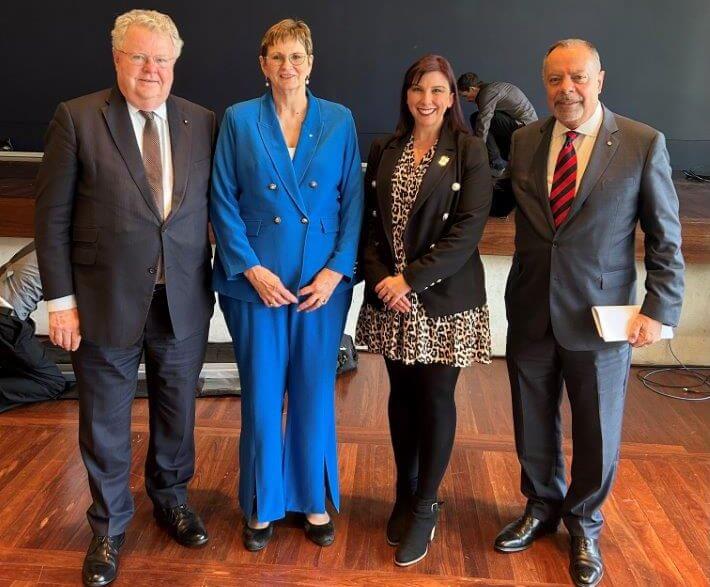
There is a cost to Australia’s way of life, prosperity, welfare system, healthcare system and the opportunity available to every Australian. That cost is a financial and a human cost. That cost is borne by our veterans and their families – because without people willingly putting the uniform on and their families supporting them to do so, the freedoms and prosperity that most Australian’s enjoy wouldn’t be as readily accessible.
The families of veterans see and experience the costs of maintaining Australia’s peace, security, and way of life. It is human and economic. It grows from the moment an Australian completes one day’s service – becoming a veteran and continues long after that service ends.
As a result of the Royal Commission, we want to see Fundamental system transformation.
For too long we’ve tinkered at the edges we have tried to address the symptoms of the problem without solving the problems. We have a responsibility to future generations as the custodians of this system today to address the problems that are abundantly clear. We can’t hand them off to another generation again, we can’t make them someone else’s problem to solve.
We want families of veterans to have pathways to support that don’t currently exist.
Media & Op-ed – Royal Commission
Veterans Legislation Reform
In its interim report The Royal Commission into Defence and Veteran Suicide recommended that work to harmonize the veteran’s legislation commence as a matter of priority in order to simplify the framework governing veteran entitlements. While this work has been considered for some time within DVA and Government, the Royal Commission’s examination of the system has been the catalyst for this work.
The harmonization Bill seeks to simply the legislative framework which governs veteran and family entitlements. The three Acts under which entitlements are administered are the:
- Veterans Entitlement Act 1986 (VEA)
- Safety, Rehabilitation and Compensation (Defence-related Claims) Act 1988 (DRCA); and
- Military Rehabilitation and Compensation Act 2004 (MRCA)
We see the harmonisation Bill and the ‘enhanced’ Military Rehabilitation and Compensation Act 2004 (MRCA) as the first step in a much larger project of system reform and simplification and would encourage both sides of politics, government, and its departments to not rest once this Bill is passed.
Defence Honours and Awards System
The Senate’s Foreign Affairs, Defence and Trade Reference’s Committee has established a new Inquiry into the integrity and efficacy of the Defence honours and awards system, with particular reference to:
- experiences of Australian Defence Force (ADF) personnel progressing through the honours and awards system;
- the effect of awards and honours on maintaining morale within the ADF;
- assurance of the integrity of awards to senior officers for conduct in the Afghanistan conflict;
- the effect of changes in criteria for some honours and awards from ‘in action’ to ‘in warlike operations’;
- the operation of the Defence Honours and Awards Appeals Tribunal, including any potential improvements;
- any potential improvements to the Defence honours and awards system; and
- any related matters.
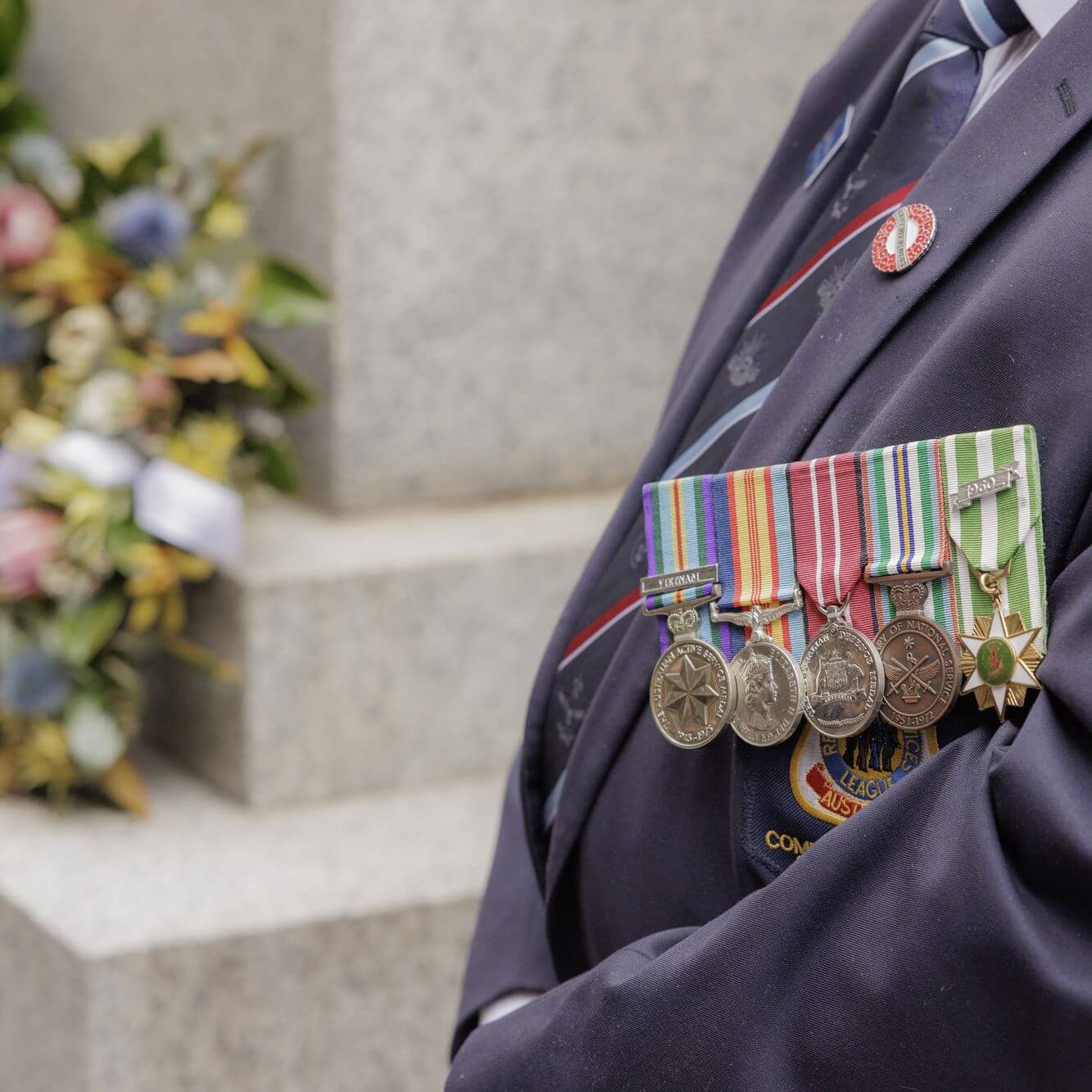
The Inquiry has been established following numerous letters sent to Politicians from veterans and serving personnel calling for changes to how military honours are bestowed and reviewed. In 2021, we supported calls for the Defence Honours and Awards system to recognise the sacrifices of veterans and their families who died or were wounded during war and war like operations. We used this opportunity to advocate again on behalf of families in 2024 we
Thank you to all of those who provided their views on the Defence Honours and Awards System. We prepared a submission to the Senate committee based on what you told us. In summary the consultation highlighted the following issues which feature in our submission:
- Issues with integrity – The Defence Honours and Awards System (DHAS) is perceived as lacking integrity. Respondents viewed the system as one that provides “medals to mates,” lacks transparency and objectivity, and does not reflect the expectations of the Australian community.
- Issues with the allocations of awards – inequities in the distribution of honours and awards was raised numerous times with an assertion that there was a disproportionate number being given to senior officers, while non-commissioned officers and other ranks performing “extraordinary acts or exemplary service” are often overlooked.
- Issues regarding conflicts of interest – there are perceptions of conflicts of interest within the system, as it is insulated from the broader Australian Honours and Awards system. The lack of independent oversight and the ability of those within the chain of command to affect nominations are seen as problematic.
- The need for recognising sacrifices of veterans and their families – respondents emphasised the need for formal recognition of the service and sacrifices of veterans and their families, particularly those who have been wounded, injured, or killed in service.

